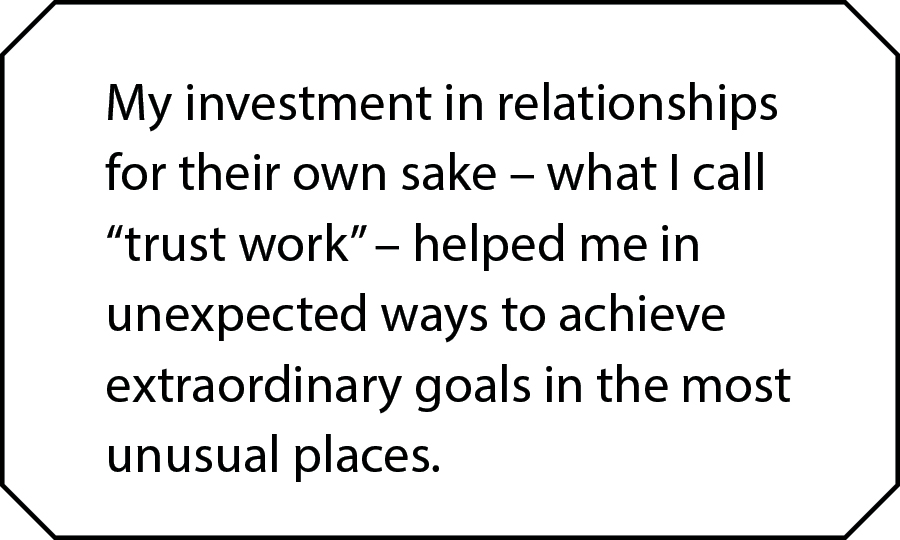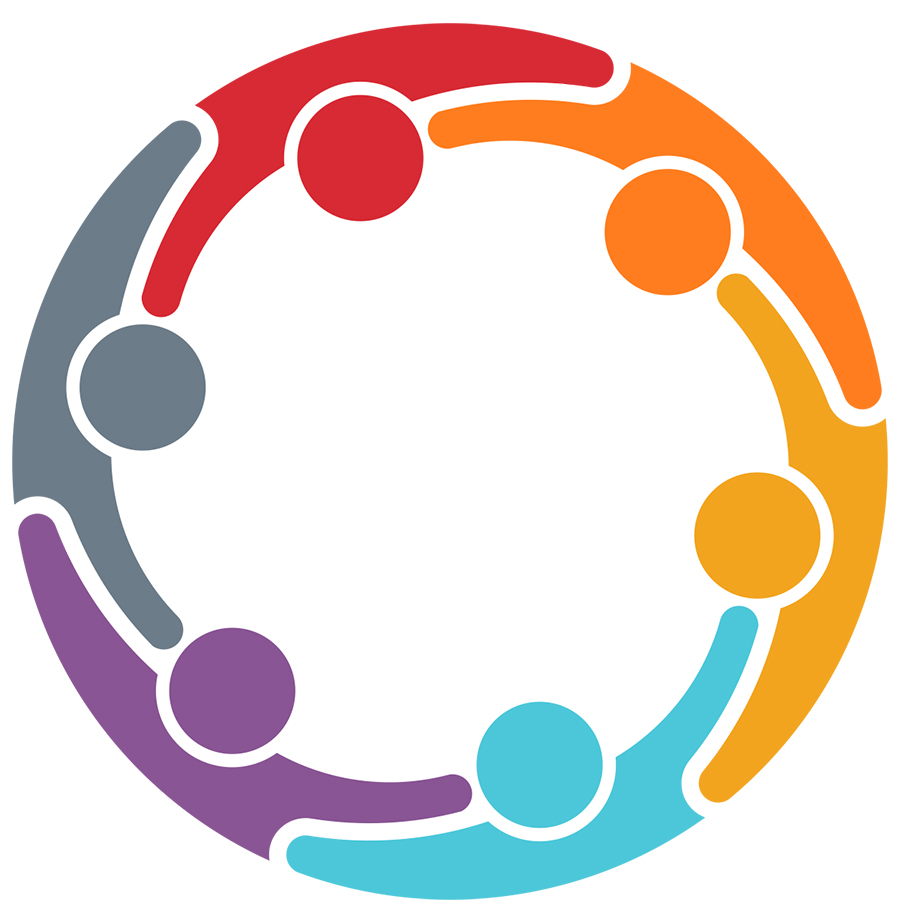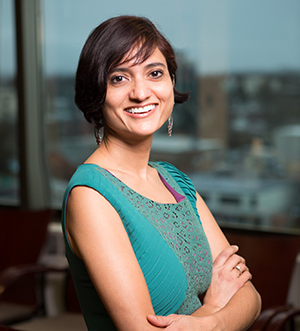Trust Work
Nurturing Relationships When You Don’t Need Them
By Archana Mishra
We all know that building relationships and networks is essential to achieving our goals. But working in six different cities and three different countries where no one knew me has taught me the power of nurturing old relationships when we don’t need them. My investment in relationships for their own sake – what I call “trust work” – helped me in unexpected ways to achieve extraordinary goals in the most unusual places.
The inspiration for this article came during a conversation with my PhD supervisor who had reached out to congratulate me on a successful project. I recently brought together 40 Alaskan leaders from private, government and not-for-profit sectors to participate in my research study based at the University of Queensland Business School in Australia. Given the difficulty in recruiting people for any research study in general, getting some of the busiest executives in Alaska to participate – two years after leaving the state – was deemed extraordinary in academia.
Shortly after this conversation with my supervisor, I received an email from my boss at the law firm in India where I started my first job as an attorney. He was checking in to see how I was doing and give me an update on a lawsuit we had filed when I worked with him nearly 18 years ago. Quite coincidentally, while I was reading that email, I received a reply to a text message I had sent to one of my classmates at the business school in Perth regarding a possible collaboration on a social project. These types of exchanges have become regular occurrences for me.

In the past, most professionals worked in a single profession and all relevant connections were made in person in a single city. But those days are long gone. We now find ourselves working in many organizations, dealing with people in multiple cities and countries, and changing career and life plans more frequently. Today’s constantly changing global workplaces create the need to develop deliberate strategies for sustaining long-distance relationships. Thankfully, our modern, hyper-connected world makes it easy to do so through social media platforms. As a result, even people we haven’t met can be part of our relationship ecosystem. The key is to not leave them as one of the ‘friends’ or ‘connections’ on our list. Just like in the real world, virtual world relationships need constant nurturing. However, people should be approached with a genuine desire to keep them in the network, frequently touching base in even simple ways.
For example, when my family moved to Alaska from Brisbane six years ago, I continued to engage with my contacts in Brisbane (not knowing if I would ever come back) through email updates, holiday cards, or simply ‘hope you are doing well’ messages. Many people reciprocated, including my former boss, who became one of my mentors. This is how trust work happens. Each incremental interaction, when it results in a positive experience for both parties, adds trust. Over time, this may lead to unforeseen collaborations in the future. This proved to be the case when we unexpectedly moved back to Brisbane two years ago. It was a seamless transition because my network had become even stronger than when I had left, all without the ‘hard work’ of formal networking.

Another example is when my daughter decided to support a small primary school in a remote Indian village to honor her great-grandfather’s legacy. Because we had invested in trust work, our family was able to draw on connections past and present. More than 80 people in 10 different countries responded and helped exceed the project’s financial goal within weeks. The basis for people’s support was the trust I had built with them over time. I kept in touch regularly, not because I needed their assistance but just for the sake of it. People appreciate thoughtfulness and rise to the occasion when you put your trust in them. Hence, when I asked for their donation, most did not hesitate to help. Their act of generosity further amplified our mutual trust work and they can be assured they can count on me in the future.
A 75-year study by Harvard researchers, the longest study on what makes us happy and have a good life, has revealed that good relationships keep people healthier and happier.1 This may seem obvious, but we often forget its importance. We take relationships for granted as if once we make them, they will always be there. We also tend to invest in the ‘right here, right now’ relationships at the peril of the established ones, which is even more prevalent in the professional realm. We are so focussed on getting results that we do not take the time to build and nurture relationships, forgetting that such relationships enhance the quality of those results we are chasing. I hope this tale from many cities convinces you of the value of nurturing relationships when you don’t “need” them, and inspires you to invest in your own trust work.

Archana is the former Director of Live. Work. Play. at the Anchorage Economic Development Corporation. She is now living in Brisbane, Australia and engaged in research studies at the University of Queensland Business School. Her research interest is in the areas of community well-being and community leadership, and she is currently pursuing an international research study, which has started with leaders from Anchorage.
Archana holds an MBA, and bachelor degrees in Law and Science.
Archana Mishra